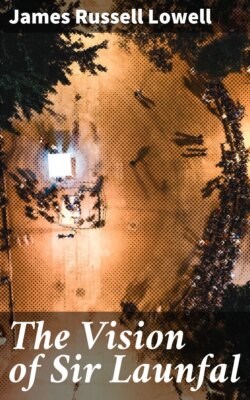Читать книгу The Vision of Sir Launfal - James Russell Lowell - Страница 3
На сайте Литреса книга снята с продажи.
PREFACE
ОглавлениеTable of Contents
The aim of this edition of the Vision of Sir Launfal is to furnish the material that must be used in any adequate treatment of the poem in the class room, and to suggest other material that may be used in the more leisurely and fruitful method of study that is sometimes possible in spite of the restrictions of arbitrary courses of study.
In interpreting the poem with young students, special emphasis should be given to the ethical significance, the broad appeal to human sympathy and the sense of a common brotherhood of men, an appeal that is in accord with the altruistic tendencies of the present time; to the intimate appreciation and love of nature expressed in the poem, feelings also in accord with the present movement of cultured minds toward the natural world; to the lofty and inspiring idealism of Lowell, as revealed in the poems included in this volume and in his biography, and also as contrasted with current materialism; and, finally, to the romantic sources of the story in the legends of King Arthur and his table round, a region of literary delight too generally unknown to present-day students.
After these general topics, it is assumed that such matters as literary structure and poetic beauty will receive due attention. If the technical faults of the poem, which critics are at much pains to point out, are not discovered by the student, his knowledge will be quite as profitable. Additional reading in Lowell's works should be secured, and can be through the sympathetic interest and enthusiasm of the instructor. The following selections may be used for rapid examination and discussion: Under the Willows, The First Snow-Fall, Under the Old Elm, Auf Wiedersehen, Sunthin' in the Pastoral Line, Jonathan to John, Mr. Hosea Biglow to the Editor of the Atlantic Monthly, and the prose essays My Garden Acquaintance and A Good Word for Winter. The opportunity should not be lost for making the students forever and interestedly acquainted with Lowell, with the poet and the man.
The editor naturally does not assume responsibility for the character of the examination questions given, at the end of this volume. They are questions that have been used in recent years in college entrance papers by two eminent examination boards.
J.W.A.
October 1, 1908.
